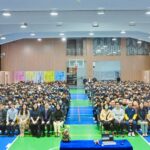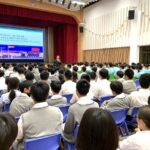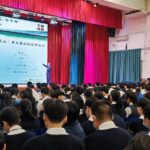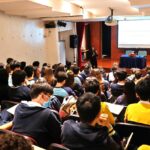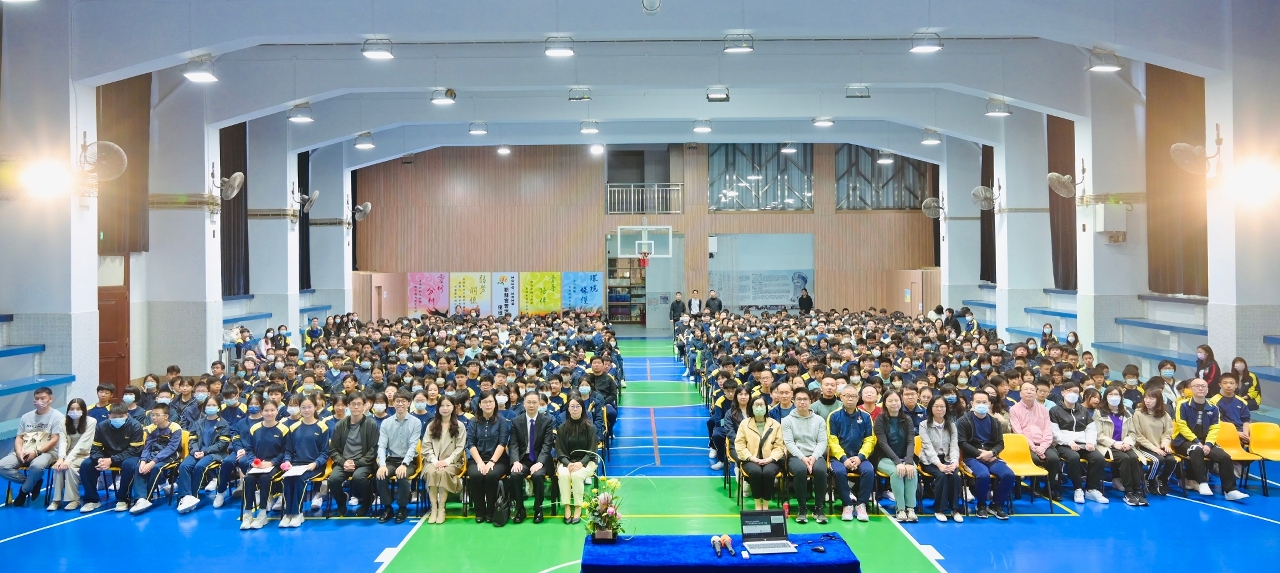 MPU's "One Country, Two Systems" Research Centre visits Colégio Mateus Ricci to gave a lecture on “National Security in Mind”
MPU's "One Country, Two Systems" Research Centre visits Colégio Mateus Ricci to gave a lecture on “National Security in Mind”
In order to commemorate the 30th anniversary of the promulgation of the Macao Basic Law, to further deepen Macao secondary school students’ understanding of the Constitution, the Macao Basic Law and the Law on Safeguarding National Security, and to create a good environment for knowing, abiding by and protecting the law, the “One Country, Two Systems” Research Centre of the Macao Polytechnic University held lectures titled “Constitution and Basic Law on Campus” from January to December 2023. The aim of the lectures is to help middle school students understand the role of the Constitution and the Macao Basic Law in ensuring the long-term prosperity and development of Macao and the safety and contentment of residents. Thirty secondary schools participated, and a total of 41 lectures were held throughout the year, with 8,300 students participating and responding enthusiastically.
The lecture activities were conducted in two phases, with the first phase from January to July. With the themes of “Relationship between the Central Authorities and the Macao Special Administrative Region” and “National Security for Everybody”, the lectures outlined the legal status of the Macao SAR, the connotation of the holistic view of national security, and the basic requirements for the Macao SAR to implement the holistic view of national security and system construction to safeguard national security. The lectures let students further understand that safeguarding national sovereignty, security and development interests is necessary for the stability and long-term development of “one country, two systems”. Students should recognize that national security is closely related to the stable development of Macao and the well-being of residents, and they must enhance their national security awareness.
The second phase was from October to December, in response to the “Constitution Day” and the entry into force and implementation of Macao’s newly amended Law on Safeguarding National Security. The centre launched three new themed lectures: “Knowing More about the Constitution”, “Discussing the Basic Law” and “National Security in Mind”, focusing on explaining the powerful legal guarantees provided by the Constitution, the Macao Basic Law and the Law on Safeguarding National Security for the long-term stability of Macao and for residents to live and work in peace and contentment. At the same time, according to the new developments and changes in the security situation in the world today, lectures introduced the core essence of the holistic view of national security: Everyone accepts their responsibilities in safeguarding national security, persists in a holistic view of national security, and coordinates the promotion of national security in all fields.
Leng Tiexun, Director of the “One Country, Two Systems” Research Centre of Macao Polytechnic University, said that young people are a key group for Macao's legal promotion work. The “One Country, Two Systems” Research Centre of Macao Polytechnic University cooperates with the SAR government to deepen the education and policy deployment of loving the motherland and loving Macao, and goes to campuses to carry out education on the Constitution, the Macao Basic Law and the Law on Safeguarding National Security, so helping the SAR government to promote education on loving the motherland and loving Macao, to cultivate young people’s legal literacy and law-abiding awareness, and to pass on the tradition of patriotism and loving Macao.


